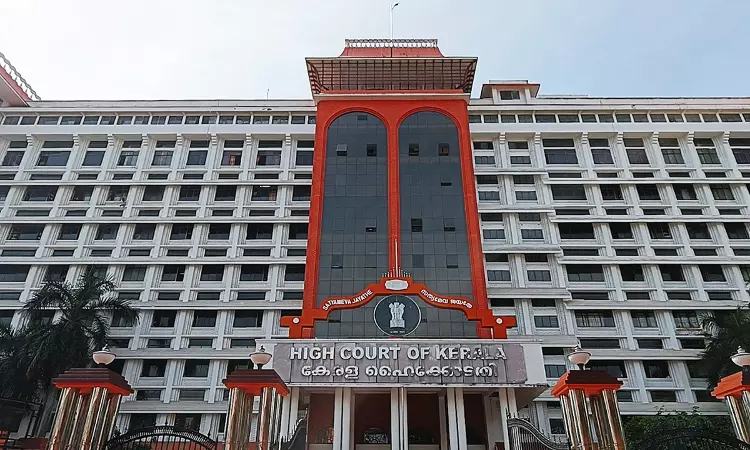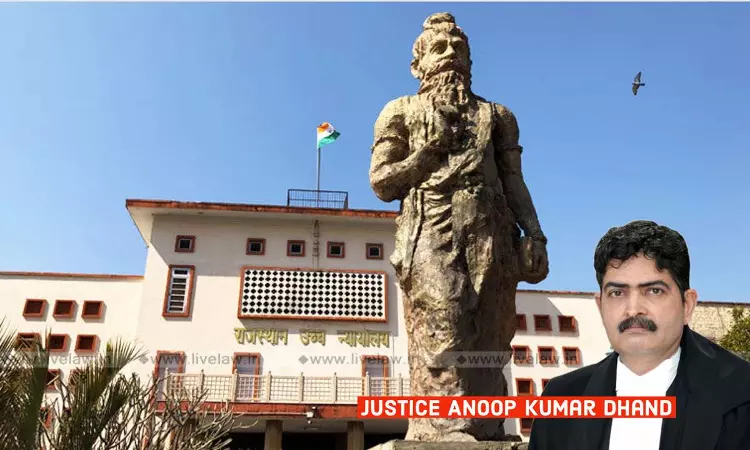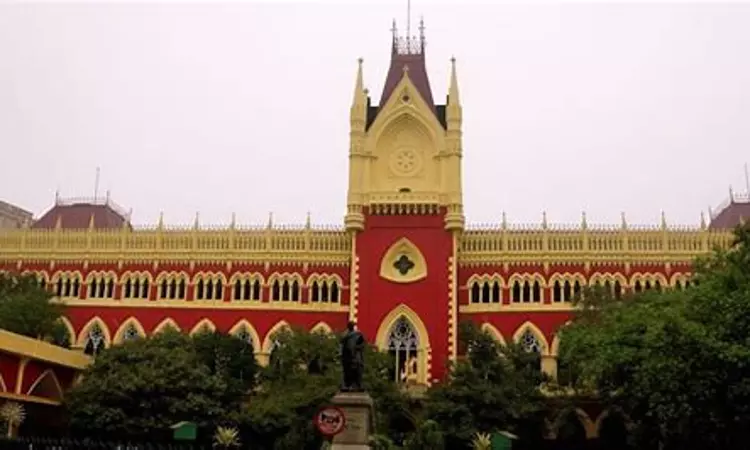நடுப்பக்கக் கட்டுரைகள்
தெளிவின் திறவுகோல்! 02.04.2025
என் உறவினர் கண் மருத்துவர். அவரைப் பார்க்கச் சென்றிருந்தபோது, அவர் அறுவைச் சிகிச்சை செய்து கொண்டிருந்ததால், நான் ஓர் அறையில் காத்திருந்தேன். அந்த அறையில் ஓர் உதவியாளர் கண் பரிசோதனை செய்து கொண்டிருந்தார். பலரும் முதல் நான்கு வரிசை எழுத்துகளை எளிதாகப் படித்துவிட்டார்கள். கடைசி இரண்டு வரிசை எழுத்துகளைப் படிக்க கண்ணாடிகளைப் பொருத்தி, பின் படிக்கச் சொன்னார்கள். இது நன்றாகத் தெரிகிறதா? என்று கேட்டுக் கேட்டு, கண்ணாடிகளை மாற்றி மாற்றிப் பொருத்தி, படிக்கச் சொன்னார்கள். அந்த மனிதர் நன்றாகத் தெரிகிறது என்று சொன்னார். இதில் இரு சாராருமே களைத்துப் போய் விடுகிறார்கள். வேறு எந்த சிகிச்சைக்குப் போனாலும், மருத்துவர்கள் நம்மைக் கேட்டு சிகிச்சை செய்யமாட்டார்கள். நோயின் தன்மைக்கேற்ப மருத்துவர்கள் சிகிச்சை அளித்துவிடுவார்கள். கண் பரிசோதனை போல இங்கு நம் முடிவு தேவை இல்லை.
எதையுமே நம் விருப்பத்துக்கு விட்டுவிட்டால், நாம் முடிவெடுப்பதில் குழப்பம் அடைகிறோம். நிறையத் தயங்குவோம்; யோசிப்போம். ஒரு புடவை அல்லது நகை வாங்க எவ்வளவு நேரத்தை எடுத்துக் கொள்கிறார்கள்! ஒரு கடையையே புரட்டிப் போட்டுவிடுகிறார்கள். அப்போதும் திருப்தி ஏற்படுவதில்லை. ஒரு புடவை, நம் வாழ்நாள் முழுவதும் கிழிந்து போகாமல் இருக்குமா? அதை வருடத்துக்குப் பத்து முறை உடுத்துவார்களா? இவர்கள் நூற்றுக்கணக்கான புடவைகளை நிராகரிப்பார்கள். இன்னொரு பெண் கையில் வைத்துள்ள புடவையின் மீது கண் போகும். உடனே அது பிடித்துப் போய்விடும். அதைக் கொடுக்கும்படிக் கேட்பார்கள். அவ்வளவு நேரமும் அந்தப் புடவையை எடுக்கலாமா, வேண்டாமா என்று யோசித்துக் கொண்டிருந்த அந்தப்
பெண், சட்டென்று, தான் அதை எடுத்துக் கொண்டதாகக் கூறிவிடுவார். இவர் ஏமாற்றம் அடைந்துவிடுவார். புடவைக்கே இந்த நிலை என்றால், நகைக்கு எப்படி இருக்கும்?
ஒவ்வொன்றையும் அணிந்து, கண்ணாடியில் பார்த்து, பின் வேறு வடிவமைப்பு வேண்டும் என்று கேட்பது; எதையும் வாங்காமல் பொழுதைப் போக்கிவிட்டு, குளிர்பானம் குடித்து, பின் எழுந்து போய்விடுவது - பாவம், அந்த விற்பனையாளர்கள். இரண்டு கிராம் நகைக்கே அத்தனை தேடல் இருக்கும். கல்யாணத்துக்கு நகை வாங்குவது என்றால் கற்பனையே வயிற்றைக் கலக்குகிறது.
அதேசமயம், யாராவது பரிசாக ஒரு புடவை கொடுத்தால், புடவையின் நிறம், தரம் என எதையும் குறை சொல்லாமல் பெற்றுக் கொள்கிறார்கள். கொடுப்பவர்கள் நிறையப் புடவைகளைக் காட்டி, அவற்றுள் ஏதாவது ஒன்றை எடுத்துக்கொள்ளச் சொன்னால் மீண்டும் புரட்டுதல், ஒதுக்குதல் நடக்கும்.
உணவகத்துக்குப் போனால் என்ன சாப்பிடுவது என்று முடிவெடுக்க நிறைய நேரம் எடுத்துக் கொள்கிறார்கள். தட்டில் உணவு வந்த பின், பக்கத்து மேசையில் உள்ளதைப் பார்த்து, "அடடா! அதை சொல்லியிருக்கலாமோ?'” என நினைக்கிறார்கள். வயிறு நிறைந்துவிட்டால் அமிழ்தமே ஆனாலும் மறுத்து விடுகிறோம். அதற்கெதற்கு இவ்வளவு தீவிர திட்டமிடல்! ஒவ்வொரு விஷயத்திலும் சட்டென முடிவெடுக்க முடியாமல் குழம்பித் தவிக்கிறோம்.
வீடு கட்டத் தொடங்கும் முன்பே எவ்வளவு யோசனைகள், ஆலோசனைகள், திட்டமிடல். நம் ஒவ்வொருவருக்கும் வீடு குறித்த கனவுகளும், கற்பனைகளும் நிறைய இருக்கும். அதனால் உத்தேசித்த தொகையைக் காட்டிலும் கூடுதலாக செலவை இழுத்துவிட்டுக் கொள்கிறார்கள். யானை அசைந்து தின்னும், வீடு அசையாமல் தின்னும் என்பார்கள். அதிலும் முக்கியமாக எந்த வர்ணம் அடிப்பது என்று முடிவு செய்வதற்குள் விழிபிதுங்கிப் போய்விடும்.
உணவகம் போவதற்காகட்டும், மருத்துவமனை போவதற்காகட்டும் அவை குறித்த மதிப்புரைகளை இணையத்தில் பார்த்த பின்னரே போகிறார்கள். பிள்ளையை எந்தப் பள்ளியில் சேர்க்கலாம்? எந்தக் கல்லூரியில் சேர்க்கலாம்? எந்தத் துறையைத் தேர்ந்தெடுக்கலாம்? என்று நிறைய யோசித்து, பலரிடம் ஆலோசனை கேட்டு, இறுதியில் அவர்கள் விருப்பத்துக்கு முதலிடம் கொடுப்பார்கள். ஒரு காலணி அல்லது ஒரு கைப்பையைக்கூட எளிதில் வாங்குவதில்லை. இரு சக்கர வாகனம் மற்றும் கார் வாங்க வேண்டுமென்றால் ஆயிரம் ஆராய்ச்சிகள். எல்லோரும் வியந்து பாராட்ட வேண்டும்; தம் செல்வச்செழிப்பின் அடையாளமாக அது இருக்க வேண்டும் என நினைக்கிறார்கள். தரமான பொருளைத் தேடி, பல கடைகளில் விலையை ஒப்பிட்டுப் பார்த்து வாங்குகிறார்கள். பொருளின் தரம், விலை, ஆயுள், பயன்பாடு ஆகியவற்றைக் கவனிக்கிறார்கள். பொருள்களின் விவரங்கள், தயாரிப்பு, உத்தரவாதம் இவற்றோடு பொருளில் ஏதேனும் பழுது இருக்கிறதா? என்றும் பார்க்கிறார்கள். சிலர் சந்தையில் புதிய வகை கைப்பேசி அறிமுகம் செய்யப்பட்டவுடன் அதை வாங்குகிறார்கள். சிலர் கைப்பேசி வாங்குவதற்கு முன், ஒவ்வொரு புதிய ரக கைப்பேசி குறித்த தகவல்களைத் தெரிந்துகொண்டு, அதில் என்னென்ன வசதிகள் உள்ளன? அது பற்றிய மதிப்புரைகள், அதன் பயன்பாடுகள் எல்லாவற்றையும் அறிந்து கொண்ட பின் வாங்குகிறார்கள். விழாக்கால சிறப்புத் தள்ளுபடிக்காகக் காத்திருப்போரும் உண்டு. பத்து ரூபாய் பொருள் வாங்க, பத்து முறை யோசித்து வாங்குபவர்கள், முக்கியமான விஷயங்களில் அவசரப்பட்டு விடுகிறார்கள்.
முதலில் திருமண விஷயத்தை எடுத்துக் கொள்ளலாம். அனைவருக்கும் தங்கள் வாரிசுகளுக்கு, சிறந்த வாழ்க்கைத் துணை அமைய வேண்டும் என்பதுதான் ஆசை. ஆனால், சதுரங்க ஆட்டத்தில் காய் முகப்பு தற்போதைய செய்திகள் திரை / சின்னத்திரை விளையாட்டு வெப் ஸ்டோரிஸ் விஷுவல் ஸ்டோரிஸ் தமிழ்நாடு இந்தியா நகர்த்துவதுபோல கவனத்துடன் இருந்தாலும் கோட்டை விட்டுவிடுகிறார்கள். பெண்ணுக்கு வரன் தேடும்போது, மணமகனின் தோற்றம், குடும்பப் பின்னணி, வேலை, ஊதியம், வசதி என அனைத்தும் சிறப்பாக இருக்க வேண்டும் என்று தேடி அலைகிறார்கள். ஜாதகப் பொருத்தம் இல்லையென்றால், ஒப்புக் கொள்வதில்லை. அதேசமயம் வெளித் தோற்றத்தையும், பகட்டையும் பார்த்து ஏமாந்து போய்விடுகிறார்கள். மணமகனின் குணம் எப்படிப்பட்டது என விசாரிப்பதில்லை. அப்படியே விசாரித்தாலும், அக்கம் பக்கத்தினரோ, மணமகனுடன் பணிபுரிபவர்களோ, சுற்றமோ உண்மையைக் கூறாமல் மறைத்து விடுகிறார்கள்.
இப்போதெல்லாம் பல இளைஞர்களின் போக்கு சரியில்லை; விசித்திரமாக நடந்துகொள்கிறார்கள். மணமகனின் வீட்டாரைப் பொருத்தவரை மணமகளின் அழகு, ஊதியம், வசதி ஆகியவை முக்கியம். வீட்டுக்கு ஒரே பெண்ணாக இருந்தால் மிக்க மகிழ்ச்சி. அத்தனை சொத்தும் சிந்தாமல், சிதறாமல் மகனுக்கு வந்துவிட வேண்டும். மனப் பொருத்தம் இல்லாத திருமணம் சிதைந்து போகிறது. காதல் மணம் புரிந்து கொள்பவர்கள் மிகவும் அவசரப்பட்டு விடுகிறார்கள். ஒருவருக்கு, மற்றவரின் உண்மையான குணம், குடும்பப் பின்னணி ஆகியவை தெரிய வருவதற்குள் எல்லாம் முடிந்து போகிறது. பெற்றவர்களால் சரியான முடிவை எடுக்க முடியாது என்ற காரணத்தினால் பெண் பார்க்கவும், மாப்பிள்ளை பார்க்கவும் நெருங்கிய சுற்றத்தை அழைத்துச் செல்கிறார்கள். அவர்களின் கணிப்பு சரியாக இருக்கும். தற்போது உடன் வருபவர்கள் எந்தக் கருத்தையும் சொல்வதில்லை.
நதியின் பிழையன்று நறும்புனல் இன்மை; விதியின் பிழை என்று எடுத்துக் கொள்ள வேண்டியதாகிறது. பொட்டு, வளையல் போன்றவற்றை வாங்க பொறுமையாகத் தேடுபவர்கள், வாழ்க்கைத் துணை தேர்வில் தவறான முடிவை எடுத்து விடுகிறார்கள். அடுத்து, நமக்கென தேசியக் கடமையும் உண்டு. மக்களாட்சி முறையில் நம்மை ஆட்சி செய்பவர்களை நாம் தேர்வு செய்கிறோம். மிக முக்கியமான இந்த ஜனநாயகக் கடமையை முறைப்படி ஆற்றத் தவறுபவர்கள் வெட்கப்பட வேண்டும். கடமையைச் செய்யாமல், உரிமையைக் கோர என்ன தகுதி அவர்களுக்கு இருக்கிறது?
நம் வாக்கை யாருக்கு அளிப்பது என்பது தனிநபர் முடிவு. குழு முடிவும் உண்டு. ஒரு கட்சியின் உறுப்பினராக இருப்பவர்கள் அந்தக் கட்சிக்கு வாக்களிக்க வேண்டும் என்பதில் அவர்கள் உறுதியாக இருப்பார்கள். தொண்டர்கள் விருப்பப்படியா பிற கட்சிகளுடன் தேர்தல் உடன்படிக்கை ஏற்படுகிறது? பிடிக்காவிட்டாலும்கூட அந்தக் கட்சியை ஆதரிக்க வேண்டும். எந்தக் கட்சியிலும் சார்ந்து இல்லாதவர்கள் எந்தச் சின்னத்துக்கு வாக்களிப்பது என்று முடிவெடுக்கத் தடுமாறுகிறார்கள். அத்தகையவர்களை ஒரு பட்டியல் போடலாம். ஒரு கட்சி தன் பதவிக் காலத்தில் என்னென்ன நலத் திட்டங்களை நிறைவேற்றியது, நேர்மையான ஆட்சி இருந்ததா, தடாலடி அரசியலா, தார்மிக அரசியலா, தனிமனித சுதந்திரம் இருந்ததா, மாநிலம் எந்த அளவுக்கு வளர்ச்சி அடைந்தது, விவசாயிகளுக்கு நன்மை செய்தார்களா, செய்வார்களா, தொழில்முனைவோரின் பாதுகாப்பு, காவல் துறையின் கண்ணியம், கல்விக்கூடங்களின் உள்கட்டமைப்பு, சாலை வசதிகள், குடிநீர் வசதிகள், நகரத் தூய்மை, சட்டம்-ஒழுங்கு நிலைமை; பெண்கள் பாதுகாப்பு ஆகிய அனைத்தையும் கருத்தில்கொண்டு வாக்களிக்க வேண்டும். ஐந்து ஆண்டுகள் நம் வாழ்க்கையை அவர்களிடம் ஒப்படைக்கிறோம் என்பதைக் கருத்தில் கொண்டு, உள்ளதில் நல்லதுக்கு வாக்களிப்போம்.
நாம் எடுக்கும் ஒவ்வொரு நம் வாழ்க்கையில் எதிரொலிக்கும். தனிமனித முடிவு என்பது ஒருவர் தன்னிச்சையாக எடுப்பது. இது ஒரு நபரின் சொந்த விருப்பம், சிந்தனை மற்றும் சூழ்நிலைகளின் அடிப்படையில் எடுக்கப்படும் ஒரு முடிவாக இருக்கும். சில விஷயங்களில் தனிப்பட்ட முடிவை எடுக்கத் தயங்கி, மற்றவர்களின் ஆலோசனைகள், விருப்பங்கள் அல்லது கட்டாயங்களுக்கு உட்பட்டு அதை ஏற்றுக் கொள்கிறோம். ஒரு தனிப்பட்ட முடிவு, அந்த நபரின் வாழ்க்கையில் நேர்மறையான அல்லது எதிர்மறையான விளைவுகளை ஏற்படுத்தலாம். எது எப்படி நடக்க வேண்டுமோ. அது அப்படித்தான் நடக்கும். சுனிதா வில்லியம்ஸ், வில்பர் ஆகியோர் எட்டு நாள்கள் மட்டுமே விண்வெளியில் இருப்பதற்காக அனுப்பப்பட்டார்கள். ஆனால், அவர்கள் 286 நாள்கள் இருக்கும்படி ஆகிவிட்டது. அதேசமயம் விதியின் மீது பழியைப் போடாமல், நம் மதியையும் உபயோகித்து எந்த ஒரு முடிவையும் எடுத்தால், குற்ற உணர்ச்சியில் தவிக்க மாட்டோம்.
கட்டுரையாளர்: பேராசிரியர். தினமணி'யை வாட்ஸ்ஆப் சேனலில் பின்தொடர...























